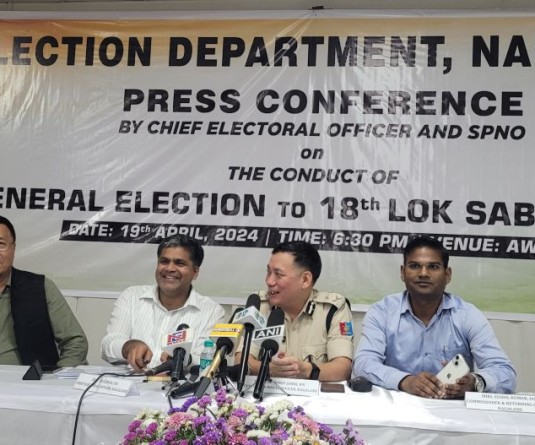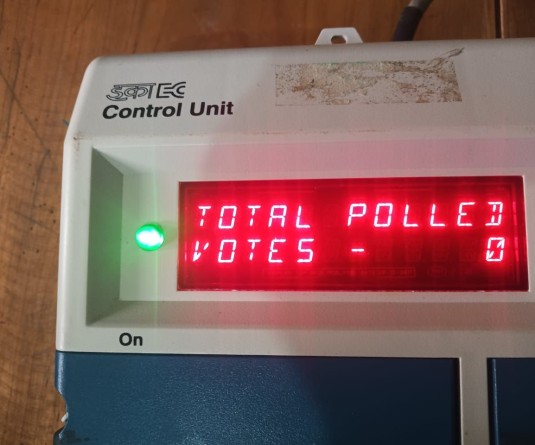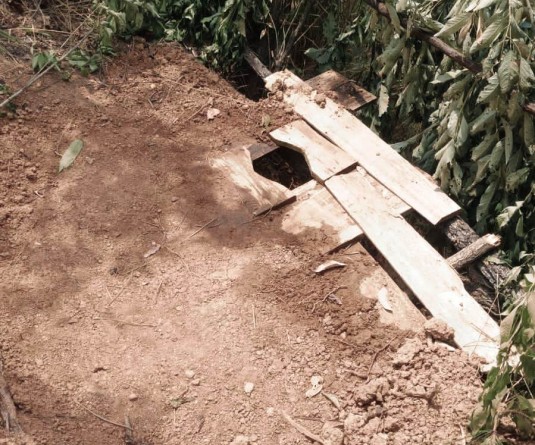
Maternity Health Care most effected
Morung Express News
Kohima/Kiphire | January 5
In a tragic incident, a couple from one of the remotest village in Kiphire lost their child midway while seeking better healthcare.
The patient, who was referred from District Hospital Kiphire (DHK) to Kohima, delivered a stillborn* child on the way and is currently in intensive care unit (ICU) at Naga Hospital Kohima.
With the passage of time and advancement, decent health care has become a basic fundamental right but for the citizens of Kiphire, it remains a pipe dream.
Since October last year, the only referral unit in the district - the 50 bedded DHK is running with a single medical officer and two AYUSH doctors. Three medical officers, who were transferred recently, are yet to join, Hospital sources informed.
As a result, the limited workforce of doctors and health personnel who remain in station bear the brunt of the system being overloaded with increasing patients besides the lack of resources.
The district hospital, according to one exasperated citizen, is nearing shutdown.
A women leader in the town while noting that the entire country is giving due importance to Maternity Health Care (MHC) system, maintained that “it is neglected most in our district”.
According to the National Family Health Survey – 4 (2015-16), maternal care in Kiphire was second lowest among the 11 districts in Nagaland, after Longleng.
Sources from DHK said that while many cases of MHC neglect were reported, most recently two cases were referred to Kohima and Tuensang respectively due to non availability of a gynecologist.
The existing health personnel at DHK continue struggling as they cope with the overwhelming shortfall in many areas.
Interacting with The Morung Express, Aso (name changed to protect identity), the husband of the patient, shuddered recounting the harrowing experience of the aforesaid incident.
“We came to Pungro for check up as my wife was bleeding but the staff told us that nurses and doctor have gone for vacation so we came to DHK,” he said.
The lady medical officer examined and also arranged three units of blood and referred us to Kohima due to non-availability of required health personnel at DHK, he recounted. The troopers of Kiphire Post of 7 Assam Rifles also donated some blood units.
“After that the DHK arranged ambulance along with a nurse and we proceeded to Kohima but since the road was bumpy and my wife was bleeding intensely, we drove slow and on the way she delivered a stillborn baby,” he added.
“With no option I along with my brother in law decided to bury the child hurriedly below the road using sticks and dead wood to dig the ground as my wife was bleeding heavily. We also used my wife’s blouse to wrap the child as we had nothing with us.”
Thereafter, they rushed to Kohima to save the mother, who was profusely bleeding and is still fighting for her life.
“With wombs removed, we don't know how her condition will be as we are in need of blood and there is no one to donate and also we know no one,” Aso stated haplessly.
The husband, a village guard in his village, is currently meeting the medical expenses of his wife by selling firewood in the village.
When The Morung Express contacted Aso about his wife’s condition on Friday, he informed that she is responding to treatment but added that she continues to be in a critical state.
Acute regional disparities (See Nagaland: Regional disparities in healthcare, The Morung Express April 6, 2017 - http://morungexpress.com/nagaland-regional-disparities-healthcare/) in healthcare as well as lack of medical professionals are leaving residents of remote districts to fend for themselves. The tragedy of Aso’s family is not an aberration but a common narrative, which needs urgent and critical course correction.
*A stillbirth is a baby born dead after 24 completed weeks of pregnancy (NHS.UK).





